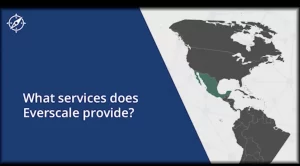A Subsidiary is a company controlled by a holding company in another region. Because it has complementary operations of the parent company, as the ideal nearby extension for innovation, testing & developing new delivery practices with more agility and competitive costs.
A Subsidiary as a Service is a framework for your operation which has a similar approach as a Software as a Service (Saas) Model:
- Obtain the benefits immediately. Companies don’t need to wait months to start benefiting from the solution, they can start in days for a faster time to market.
- Less expensive. With Saas, the startup cost goes down abruptly as you don’t have to install infrastructure or hire an inhouse team to support it. By sharing common resources, you don’t need to hire local specialists full time, you use specialist as needed, as a shared service.
- Scale when is needed. Don’t need to buy the full solution and a package of users that you don’t know when you will start using each functionality and how many users you will actually use. Adjust accordingly with our economy of scale.
- Shorter contracts. Not sure of a long-term commitment, sign shorter periods and pay monthly as it is used.
- Any company has access to it. Saas was created so Small & Medium Enterprises could access the solution benefits that the big corporations have (more on M&A Alternatives)
A Subsidiary as a Service has the added advantage that is a safer path when entering a new geography, as Everscale minimizes potential risks & liabilities of the region.
Everscale enables a unique framework for a strategic Subsidiary with full capabilities, which includes a scalable local operation team with industry savvy executives for GTM strategies. It can add delivery teams with different engagement models.
When a Subsidiary-as-a-Service is recommended
- When the company is not ready to commit to a certain market for more than 5 years.
- Planning to start the operations with less than 20 employees.
- Need a team and resources quickly, instead of waiting 2-3 months.
- Prefer to pilot the region, before investing a large expansion budget.
- Need temporary capabilities in other technologies.
- You need industry specific knowledge for Sales Executives or Consultants, that a Regular PEO doesn’t provide.
Subsidiary as a service benefits
- Scale as you grow.
- Pilot the region first.
- Stay nimble by leveraging our economies of scale.
Alternatives for starting an operation in a new region:

Subsidiary as a Service as an M&A Alternative

Today’s trends in M&A, reflect that companies are seeking to be more innovative and responsive to customer needs, but they need to stay agile. The challenge is how to add new business practices to realize these objectives under frameworks that work best for each industry.
“Grow beyond standard business models – An Alternative on M&A” examines the use of alternatives to enter a new market and adding business capabilities for growth. It uses a current example of a company operating in this new niche, born in the heart of the digital transformation economy.
References
“How the Partner Ecosystem is Evolving in the Digital Economy”
“Building scalable Business Models”
“Evaluate Offshore/Nearshore Countries for Outsourcing, Shared Services and Captives Worldwide”
“How to Successfully Transition from BPO to BPaaS, Digital Services and Automation”
Gartner Market Insight, March 2017
“Strategic Alliances as an alternative to M&A? Driving growth through strategic alliances”
KPMG Strategic alliances Survey, 2017
“Digital Growth Depends More on Business Models than Technology”
“The end of scale”
“Your Path to Build new Solutions for Customers and Prospects”
Hans Georg Uebe (Global Vice President Channel Development and Expansion at SAP), October 2019
“The Next Generation of SAP Partners and Cloud Business Models”
Interview to Karl Fahrbach, SAP’s first-ever Chief Partner Officer, July 2019
“Peer Networking as a Key to Digital Transformation”
John Scola, GVP SAP Global Channels Cloud & Strateg, October 2019



